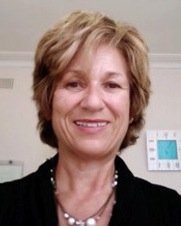5A Bundarra Rd, Bellevue Hill02 9300 9066
Lorraine D. Corne
Bellevue Hill Counselling Psychology Services

Trained as a clinical psychologist, Lorraine specializes in relationships and personal counselling. She has helped individuals, couples, families and adolescents across the Eastern Suburbs and North Shore of Sydney since 1994.
No two people are the same, and Lorraine draws on her breadth of experience to tailor her approach to each client. She employs a wide range of therapeutic methods, using them to maximise the quality of the relationship and effectiveness of therapy. These methods include:
- Cognitive Behavioural Therapy
- Another Type of Therapy
- A Third Type of Psychological Therapy
With 30 years experience counselling children, adolescents, parents and couple, Lorraine can assist you whether you are experiencing an acute life crisis, or you want to address a longer term issue.
Lorraine was a founding member and former co-chair of the APS Child, Adolescent and Family Interest Group (NSW), and is an international member of the American Psychological Association. Lorraine was National Chair of the APS College of Counselling Psychologists (2002-2006), and Chair of the NSW College of Counselling Psychologists (NSW section) (1998-2002).
Do I really need help?
When behaviours, feelings, thoughts, perceptions seem irrational we have trouble understanding why we feel so afraid, angry, obsessed with little things. We become so angry with ourselves that we believe that we are worthless, hated, unlovable. We become "stuck" or feel "lost".
Being "stuck" or "lost" are common ingredients in many psychological conditions, such as:
- anxiety,
- depression,
- phobias (social phobia, agoraphobia, specific phobias such as fear of flying),
- worry,
- panic,
- obsessions,
- adolescent rebellion and self-harm,
- drug and alcohol abuse,
- sexual promiscuity or dysfunction (male, female, couples)
Irrational thoughts, feelings and behaviours are driven by states of confusion as if you have lost track of what life is all about. You may know you are unhappy but it is as if you can't help being that way or that you were born that way and have always been that way. You feel that you can't change.
Counselling and therapy can help
Counselling and therapy are often confused. Counselling involves speaking to someone about your worries and concerns. Counselling offers relief from your emotions through conversation.
For some people, counselling is enough, but many become dissatisfied with counselling because they are looking for not just awareness, but also change. This is where therapy can help. Therapy is the process of taking steps to address those emotions and their cause in a safe and constructive way.
Therapy and counselling are intimately linked. It is impossible to extract yourself from self-destructive patterns of feeling or behaviour, unless you are able to recognize them as soon as they occur. But once you do start to recognize the motivations, feelings, or agendas that draws you into these repeated patterns, you need practical advice on how to interrupt and replace those patterns. Lorraine can help you through this process of self-awareness and self-repair.
Should I talk to a counselor, a psychologist, or a psychiatrist?
Like any counselor, a counselling psychologist can help you talk through your problems, but they also have an understanding of the best therapies available. While only a psychiatrist can prescribe psychoactive drugs, a psychologist has a range of effective non-pharmacological strategies, and if consulted early, can avoid the need for psychiatric intervention.
The most important thing is to form a good relationship with your therapist. No therapist will be right all the time and your expectations for change may be unrealistic or misguided. Your therapist should help you understand what is probably going on and give you guidance as to how to change.
Remember: You have to take an active role in any therapy, otherwise it will have no impact on your behaviour or feelings and life will remain the same. There are no silver bullets, but there is support, if you choose to accept it.


